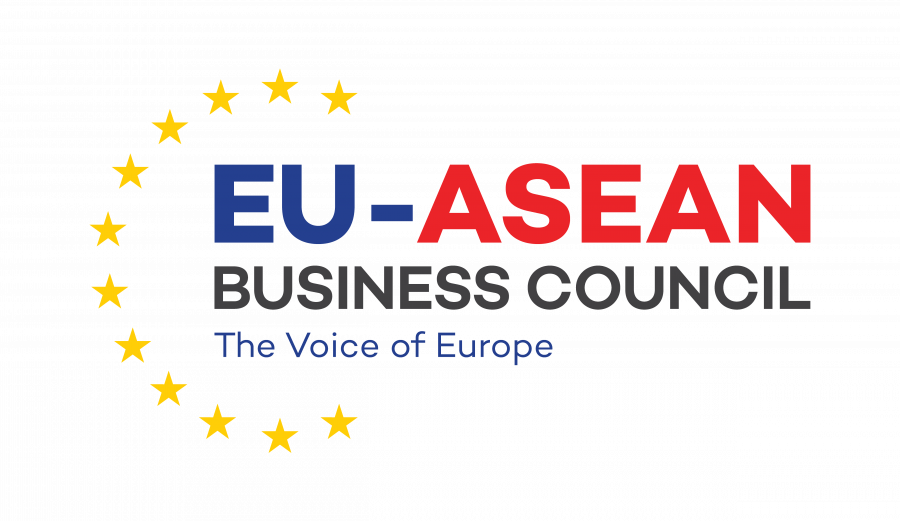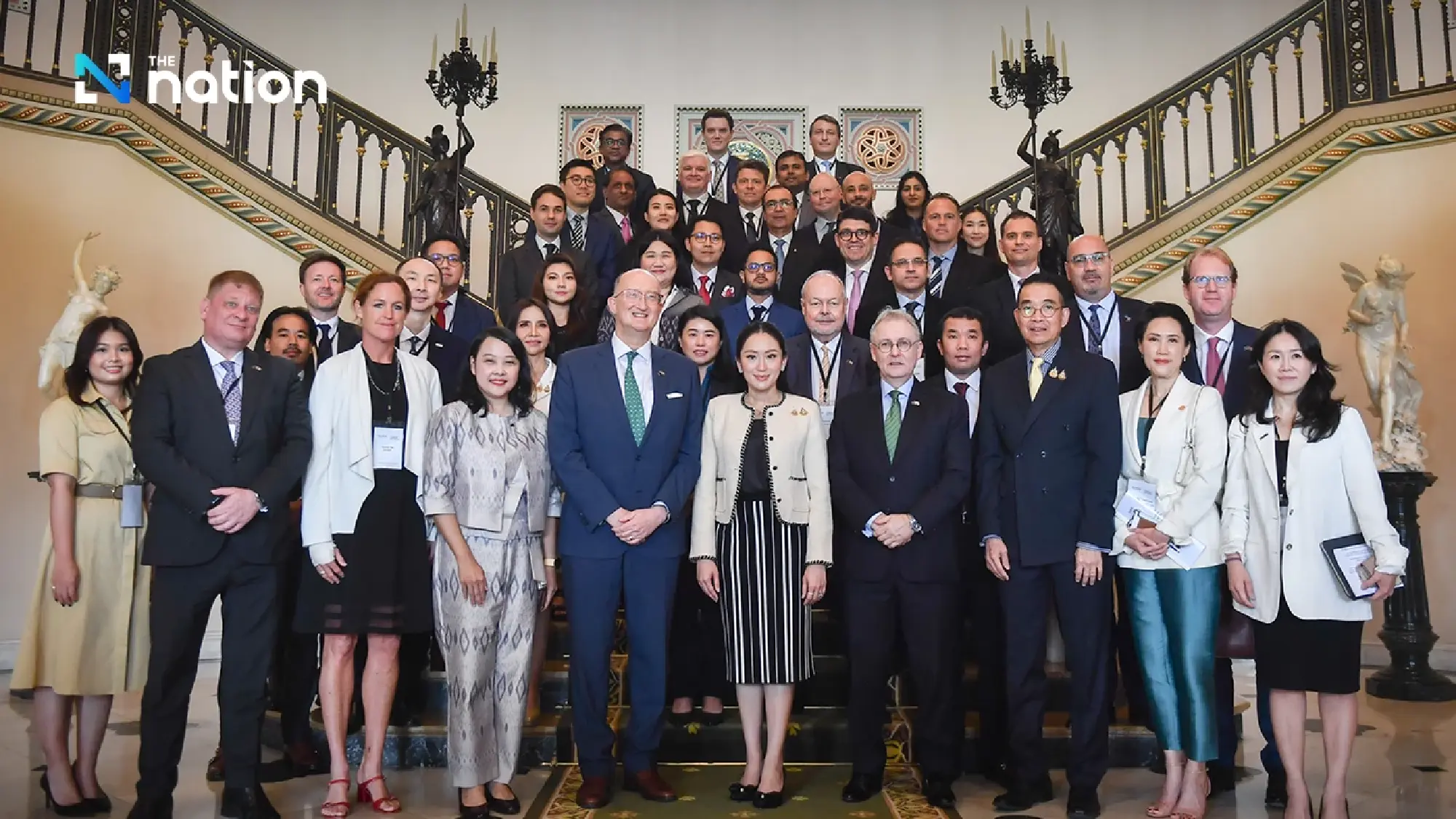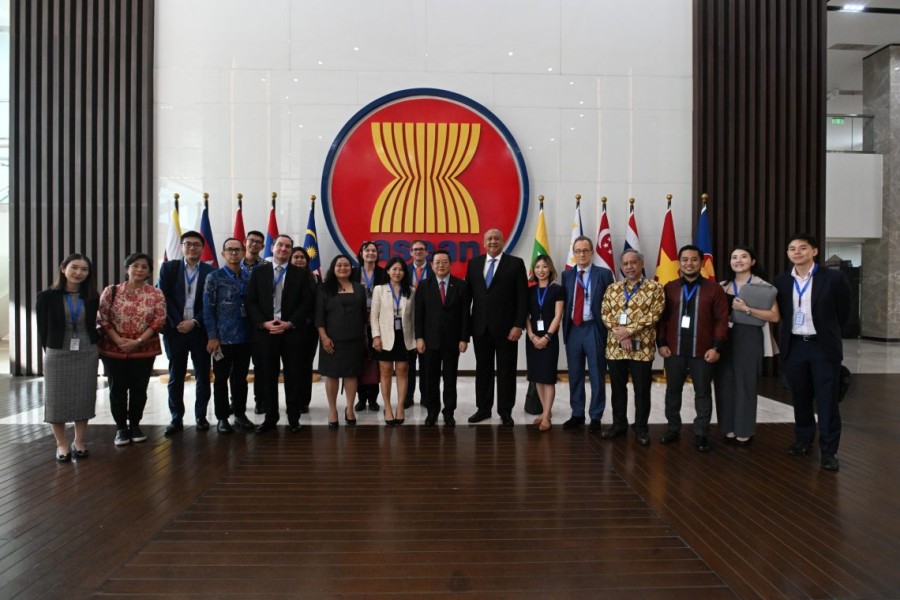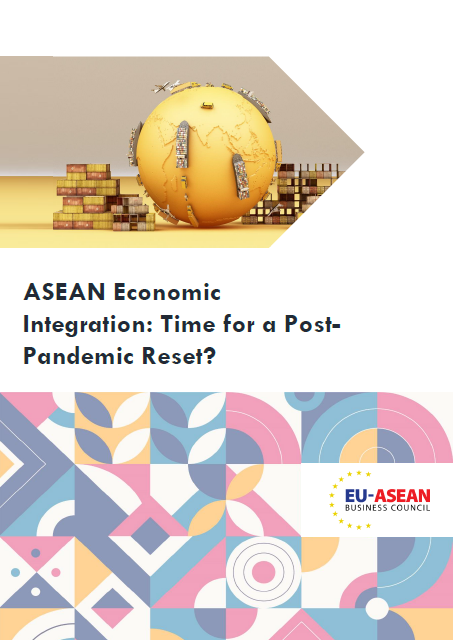
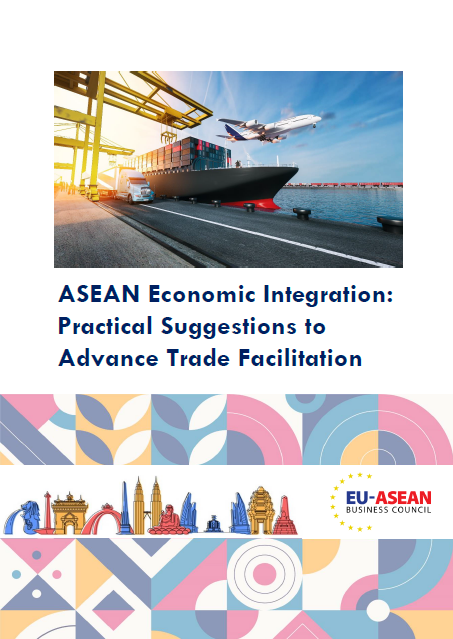
SLOW PROGRESS ON ASEAN ECONOMIC BLUEPRINT RISKS LONG TERM FUTURE
27th May 2021: The EU-ASEAN Business Council (EU-ABC) today published two papers calling for more progress on ASEAN’s regional economic agenda and linking a durable recovery from the pandemic to ASEAN’s Leaders, Trade and Finance Ministers putting in place specific measures to accelerate work on the ASEAN Economic Community (AEC).
The EU-ABC, which represents the interests of the European business community across Southeast Asia, cited concerns about the lack of progress on key elements of ASEAN economic integration under the AEC, particularly in the area of the elimination of non-tariff barriers to trade. In their reports, the EU-ABC also noted that even pre-COVID-19, ASEAN was seeing a flattening off of foreign direct investment to the region, and a fall in trade. COVID-19 has only worsened that position and therefore there is a more pressing need to accelerate regional economic integration to assist with the economic recovery from the pandemic. The EU-ABC therefore calls for more coherent, faster and transparent action to aid with the economic recovery of the region and to bolster its attractiveness for investments.
Donald Kanak, Chairman of the EU-ABC said: “ASEAN has a huge opportunity in the next few years to become an even more significant participant in and contributor to the global economy, if it can make tangible progress on its economic integration agenda. That requires a reset in how the region deals with non-tariff barriers to trade. That reset is key to easing the flow of goods, improving ASEAN’s competitiveness and creating a better investment environment.”
He continued: “Those measures are key to harnessing the combined strength of all 10 ASEAN economies so the region can compete effectively with other regions, leveraging on the dynamism and scale of a market of 650 million citizens. By working more cohesively together and delivering on the promises made in the AEC Blueprints, the region will recover quicker from the pandemic and the recovery will be durable.”
Chris Humphrey, Executive Director of the EU-ABC added: “We are seeing clear signs that businesses are losing patience with the ASEAN economic integration project. Progress has been disappointingly slow. Non-tariff barriers to trade remain a major obstacle to sustainable development in the region, despite the various statements from the ASEAN leaders and ministers that they need to be eliminated. Quantity and Price Controls in particular remain in place, diminishing competition and innovation in the region to the detriment of local businesses and the wider populations.”
In the papers, the EU-ABC said that it perceived the following as hampering progress on economic integration:
- Lack of commitment or inability to deliver on the promises enshrined in both the 2015 and 2025 ASEAN Economic Community (AEC) Blueprints;
- Targets set by ASEAN are regularly missed, in particular commitments to tackle non-tariff barriers to trade are hampered by ineffective processes and tools;
- Existing trade facilitative agreements, such as the ASEAN Trade in Goods Agreement (ATIGA), remain to be fully implemented or adhered to;
- The region is adding new ideas and programmes, such as in digital transformation, but continues to fail to deliver on existing ones.
A consequence of ASEAN’s lack of progress in these areas is that most multinationals (as well as regional SMEs) treat ASEAN as ten individual markets, and consequently focus on one or a few markets that are of most importance or interest to them and do not address the region as a whole.[1] An even more significant consequence is that a sustainable recovery from the pandemic hangs in the balance.
“The pandemic offers ASEAN a challenge and an opportunity for a “reset” in its approach to economic integration. More urgency, more commitment, more resources are needed to deliver the AEC Blueprint and realise the region’s huge potential. Business needs to play its part by identifying barriers and then executing with more jobs, more trade and more investment whenever barriers are eliminated” added Chris Humphrey.
[1] In the EU-ABC’s EU-ASEAN Business Sentiment Survey 2020, only 16% of respondents said they had a regional strategy, down from 24% in 2018. Only 2% of respondents said that work on the AEC was progressing fast enough, down from 8% in 2018.
END.
View the full list of EU-ABC publications here
